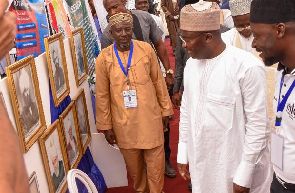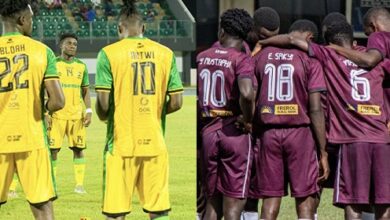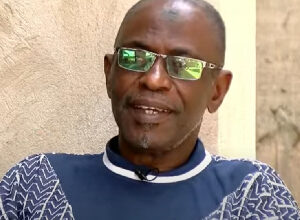
Vice President Dr. Mahamudu Bawumia has dropped a hint of the attributes of the one to be appointed as the Special Prosecutor, a day after President Akufo-Addo had signed the bill into law.
Although his description fell short of pinpointing who would actually receive the presidential nod for the top anti-graft post, conjectures among Ghanaians have gone overdrive.
The Special Prosecutor, the vice president said, would be a person of integrity and one with impeccable moral standing in the Ghanaian society. Dr Bawumia dropped the hint when he was addressing the 86th annual conference of the Ahmadiyya Muslim Mission in Pomadze, Central Region, as the Special Guest of Honour yesterday.
Vice President Bawumia, on Thursday, said the signing of the Special Prosecutor’s Bill by the President into law is a significant step and determination by government to fight corruption.
He said the legislation would ensure that both the past and present public officers would be under the microscope and held accountable for their actions and inactions.
This, he said, would help the government to fight corruption and ensure the prudent use of the natural resources for the benefit of all.
‘‘The Special Prosecutor Act is going to be an instrument to help ensure discipline and am sure by the grace of Allah, when the President makes the appointment of the Special Prosecutor, we will see somebody who has the integrity and credibility to undertake this major task that the nation is waiting for.
‘‘If you’re a public official who has been given the responsibility over the public purse and you’re interested in stealing the people’s money that is the highest form of indiscipline and unpatriotism that you can find. ‘‘So as a nation, if we’re going to make sure the resources that God has given us are well utilised in the interest of the people, then this issue of corruption must be stamped out,’’ he emphasised.
Now that the law establishing the Office has been promulgated, many Ghanaians find the vice president’s hint reassuring, especially against the backdrop of efforts at politicising the subject.
The theme of the conference, ‘Ensuring Disciplined Society: The Role Of Religion,’ ties in with the establishment of the Office of the Special Prosecutor; also, the signing of the Bill into law, according to the vice president, “is a significant step in the president’s determination to fight corruption in the public life of our dear nation.”
Past and present public officers, he hinted, would account for their stewardship. This, he added, “will help fight corruption and ensure prudent use of our resources for the benefit of all.”
Dr Bawumia stressed, “The importance of the theme cannot be over-emphasised. Discipline is the regime of training the mind or body to control behaviour in ways that positively serve society.”
Religious bodies, he charged, “have a mandate to provide training that is capable to transform society and the individual. Without this guidance, the human being, in his physical state, has the tendency towards unacceptable behaviours.”
He noted, “Many believe that religion has somehow failed in sterilising the society due to the prevalence of high levels of corruption, stealing of public and private funds through inflation of contracts, under-invoicing and over-invoicing, tax avoidance and tax evasion, among others.”
The remedy to these moral shortcomings, he posited, “is the continuous inculcation of discipline into the moral fabric of the Ghanaian people and I challenge religious bodies to do more in this direction.”
While emphasising the commitment of government’s resolve to build a robust economy, he nonetheless called for the collaboration of Ghanaians towards the achievement of this goal.
“The Northern Development Authority, Coastal Development Authority and Middle Belt Development Authority bills will manage the cedi equivalent of $1 million allocations to every constituency to undertake basic infrastructural projects,” he explained, adding, “This is aimed at enhancing bottom-up development by increasing economic activity at the local level, and can only be achieved with significant levels of discipline and commitment.”
He charged Ghanaians to develop a sense of patriotism and eschew corruption in their dealings and see themselves as stakeholders in the prosperity of the nation.




